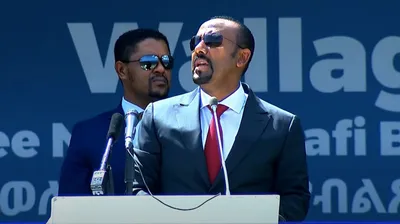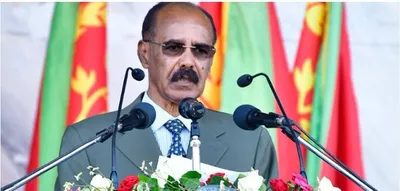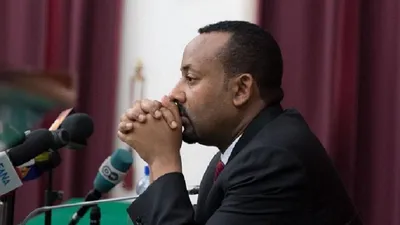René Lefort: “what is at stake today is the decolonisation of the Ethiopian empire.”
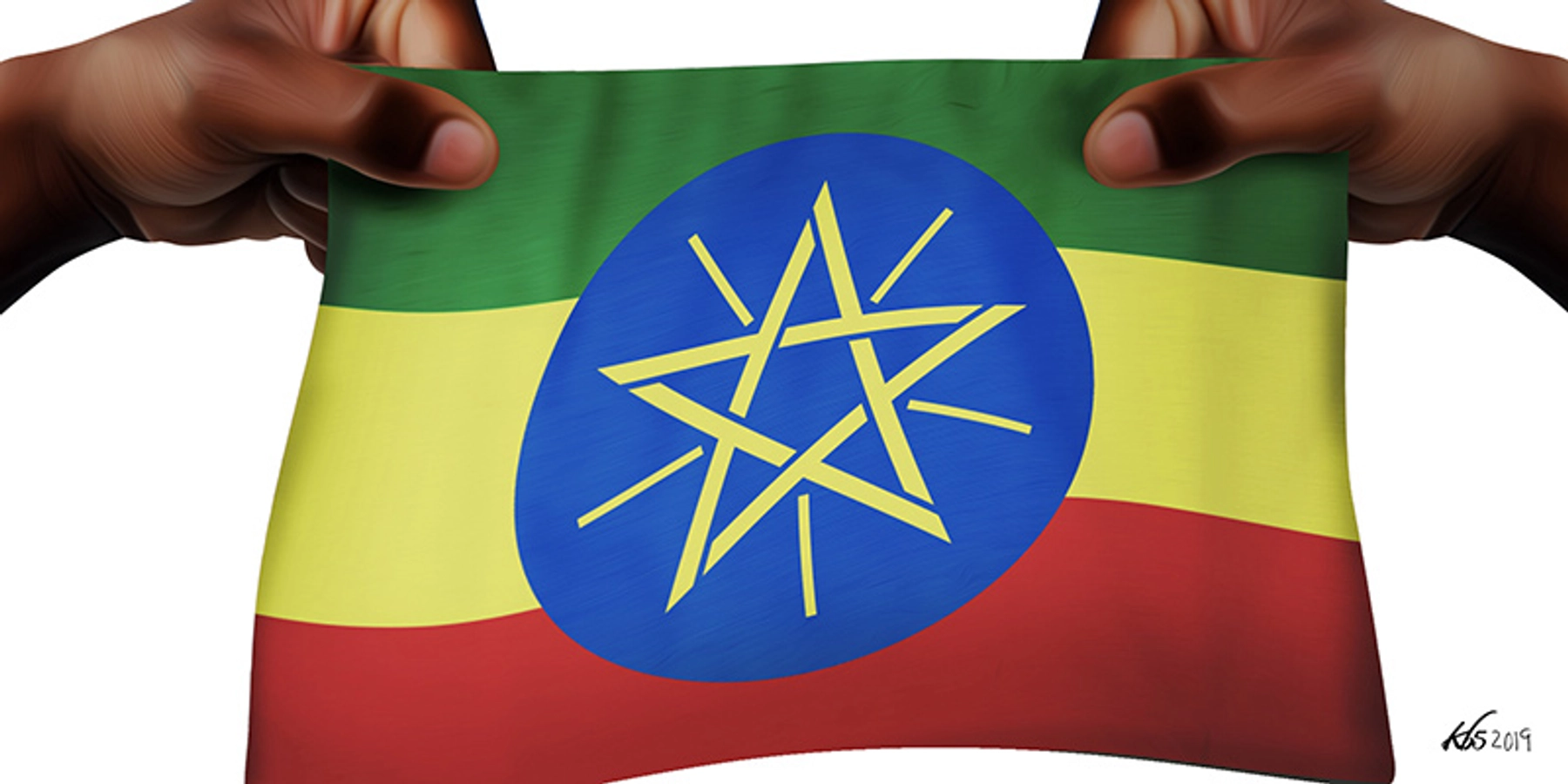
Illustration of the current flag of Ethiopia being torn apart by forces that represent the politics of empire that is leading the country to disintegration. Source: The Elephant.
Editor’s note: This interview was originally published by RFI. René Lefort is an independent researcher who has been writing on Ethiopia and the region since the 1970s.
RFI: What do you think of the attitude of the federal government of Ethiopia, which is bombarding Tigray only 24 hours after the proposal for dialogue from the Tigrayan authorities?
René Lefort: In fact, it’s a big middle finger to the international community which pressed [the government] to seize the olive branch, as it were, that the Tigrayans extended to them. It means very clearly that Abiy Ahmed does not want a quick resumption of negotiations or a cessation of hostilities. He still expects to have the military superiority to recapture Tigray. Abiy Ahmed sees himself as the leader of the whole of unified Ethiopia, under his authority. The Tigrayans want very strong autonomy. The objectives are absolutely incompatible.
Does independence or autonomy for Tigray seem realistic to you?
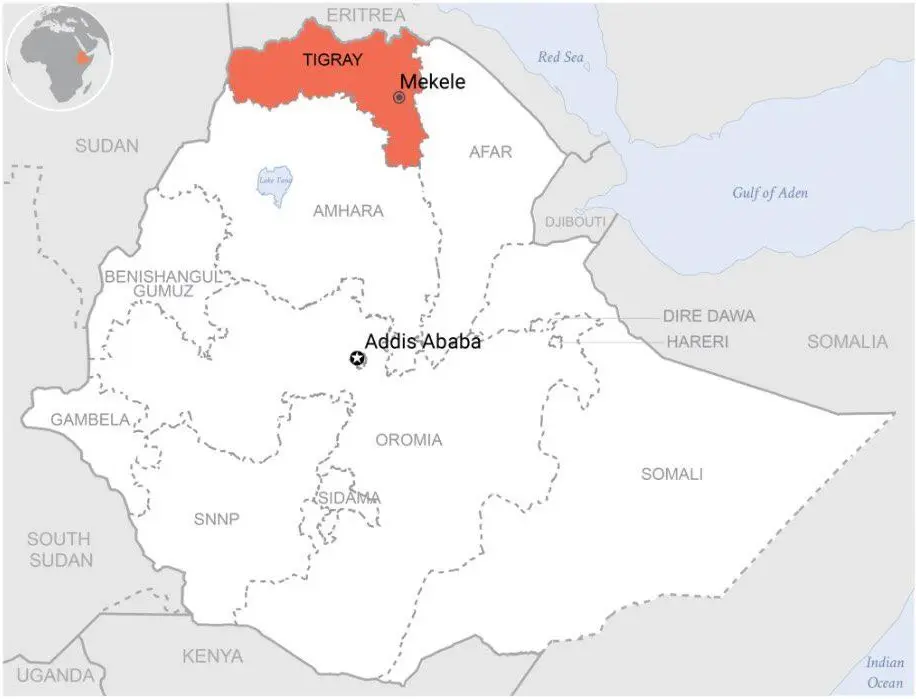
The independence of Tigray is mainly demanded by the population and by the militants. What is holding back independence is the leadership of the Tigray People’s Liberation Front [TPLF] which believes that Tigray must remain linked with Ethiopia. An independent Tigray without access to the Sudanese border is very problematic. On the other hand, Ethiopia without Tigray is not threatened as such because Tigray is only 6 million out of 110 million population. And it’s an economically marginal region.
But what you need to understand is that what is at stake today is the decolonization of the Ethiopian empire. Will we continue to have a strong state, concentrated in Addis Ababa, or will we have an extremely loose confederation of the various nations, nationalities, and peoples of Ethiopia?
If something is granted to the Tigrayans, other regions might want the same thing and we risk the implosion of the country once again?
I think we have to be realistic: there is no longer a link that can unite Ethiopia. The conflict was so intense that this connection no longer exists. The only solution is to gradually move towards some kind of Ethiopian confederation or even something that would resemble what brings together the states of the European Union.
Can there be peace as long as the president of Eritrea, Isaias Afwerki, is there and has the ambition to destroy the TPLF?
This is the major obstacle. Isaias Afwerki’s ambition is to become the boss of the Horn of Africa, to pull all the strings. To do this, he must destroy the TPLF. So it’s a life-and-death struggle.
A resistance of the Tigrayans on the military level. Is this possible?
For the federal forces, the aim is to conquer all of Tigray. The Tigrayan strategy in this phase is to destroy as many federal forces as possible. And then to go on the attack to recover occupied territory, lift the blockade, etc. The federal forces have not made any territorial gains so far, so the Tigrayan strategy would be the most effective.
We have seen the emergence of new diplomatic actors in the last few days, notably the American special envoy Mike Hammer and Uhuru Kenyatta, the now former Kenyan president, do you think this can help?
The African Union has simply been rubbish so far, absolutely rubbish. Olusegun Obasanjo [former Nigerian head of state], the official African Union mediator, has not said a word since the war resumed. The fact that Uhuru Kenyatta is back in the saddle could contribute to an African solution because Kenyatta is accepted by Mekele. Now, on the Western side, how far are they willing to go? Abiy Ahmed has shown that he has no intention of seriously negotiating a cessation of hostilities. Will the international community put serious pressure on him? So far, it has never really done so.
We need your support
We trust you found something of value in this article. If so, we kindly ask you to consider helping Curate Oromia continue its work.
If you believe in the importance of independent voices and honest reporting, we invite you to support our efforts through our GoFundMe campaign.
Every contribution, however small, goes directly to our writers and the expansion of our reach.
Thank you for your support.

